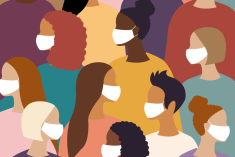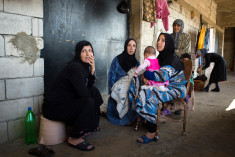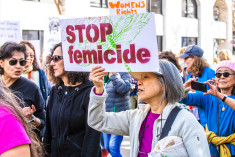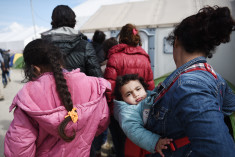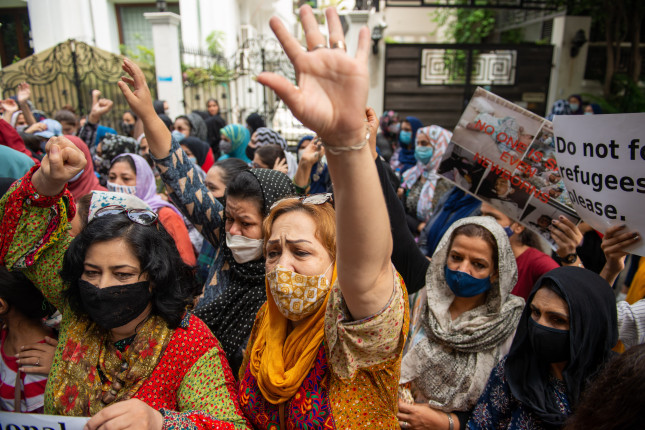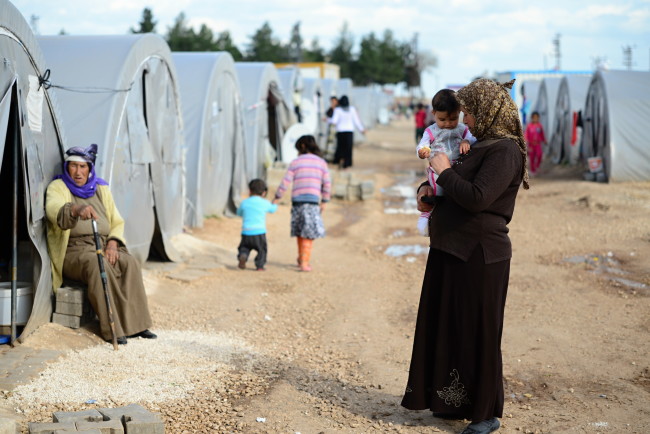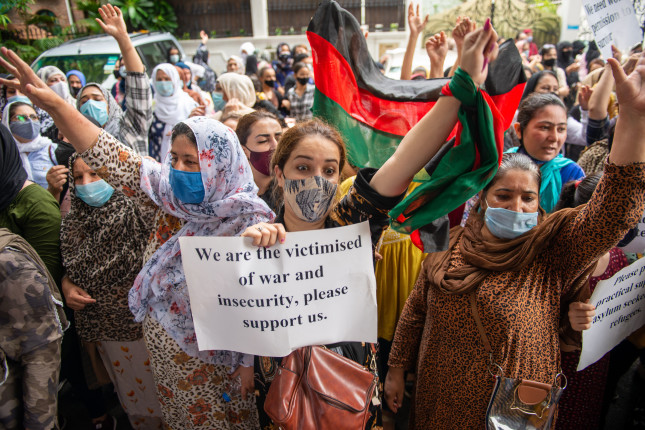-
The Lasting Effects of the COVID-19 Pandemic on Women’s Work, Health, and Safety (New Report)
›
While the COVID-19 pandemic has affected the lives of many around the world, its effects on women have been particularly devastating. Even before the pandemic, women are highly affected by violence. Since the pandemic, rates of gender-based violence have risen, while uptake of critical health services have decreased. Women, especially low-income women, women of color, and migrant women, are also more likely to work in jobs that are underpaid, undervalued, and unprotected, and they comprise the majority of the frontline or “essential” workforce, which includes grocery and food retail workers, health care workers, and care workers.
-
Through the COVID-19 Lens: Essential Services Needed to Prevent Unintended Pregnancies
›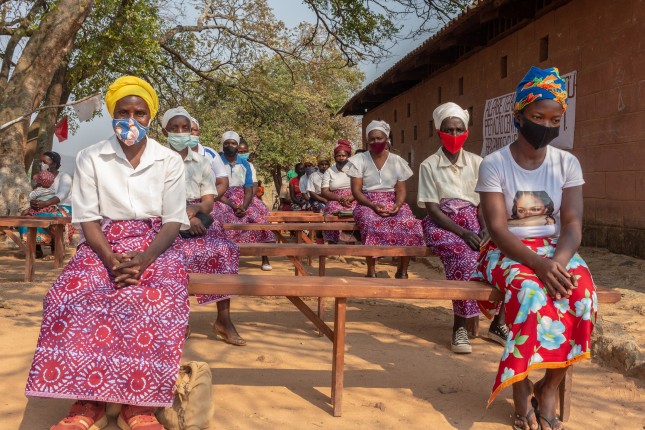
“The current pandemic is straining human resources, disrupting supply chains and service delivery, and negatively impacting service seeking among women and girls in countries across the globe,” said Sarah Barnes, Project Director of the Wilson Center’s Maternal Health Initiative. She spoke at a recent event, co-hosted by the UN Population Fund (UNFPA), on unintended pregnancies during the COVID-19 pandemic. The increasing rates of unintended pregnancies during the pandemic have exacerbated the vulnerabilities of many women, said Anneka Knutsson, Chief of the Sexual and Reproductive Health Branch at UNFPA.
-
Accessing Justice for Gender-Based Violence in Humanitarian Settings
›
Gender-based violence (GBV) is a global epidemic rooted in gender inequality and an imbalance in power dynamics. All persons are at risk of violence because of their gender or perceived gender. Women and girls—including transgender women and girls—experience disproportionate gender-based violence, and this violence is even more prevalent among women and girls who have been forcibly displaced.
-
16DaysCampaign Calls to End Femicide: Research Shows Women in Perinatal Period at Risk
›
“Femicide is an important, but often unreported, cause of maternal mortality. This research documents the immediate need for universal abuse assessment of all pregnant women,” write the authors of the self-declared first study to report a definite link between abuse during pregnancy and attempted/completed femicide—the gender related killing of women. This study was published in 2002.
-
COVID-19 Pandemic Exacerbates Violence Against Refugee Women and Girls
›
Currently, refugee women and girls are facing three concurrent crises: their ongoing humanitarian crisis, the health crisis of the COVID-19 pandemic, and the invisible crisis of gender-based violence (GBV). COVID-19 has severely worsened various dimensions of inequality for refugee women and girls. A 2020 report found that 73 percent of forcibly displaced women interviewed across 15 African countries reported elevated cases of domestic or intimate partner violence due to the pandemic. In addition, 51 percent reported sexual violence and 32 percent observed a rise in early and forced marriages.
-
‘Women’s Bodies are No One’s Battlefields’: Preventing War and Conflict-Related Sexual Violence
›“Since time immemorial, rape has been used to control women’s sexuality, labor, and reproduction, to shred the social fabric, to conquer territories and populations, and crush the enemy’s moral and will to resist,” said Under Secretary General Pramila Patten, UN Special Representative on Sexual Violence in Conflict, at an event focused on addressing conflict-related sexual violence (CRSV) organized by The Secretary’s Office for Global Women’s Issues, Search for Common Ground, and the Georgetown Institute for Women, Peace, and Security. In the past two decades, legislative reform, sanctions against perpetrators, and systematic reporting have slowly transformed the climate of impunity surrounding CRSV, said Patten.
-
Localized Responses to Gender-Based Violence Leave Women-led Organizations Behind
›
One in five women who is forcibly displaced will experience sexual violence, said Charlotte Slente, Danish Refugee Council Secretary-General at a roundtable on the prevention of gender-based violence in humanitarian crises during the 76th session of the United Nations General Assembly. The high-level roundtable was hosted by the Government of Denmark in partnership with several other international bilateral agencies, as well as women-led organizations.*
-
Afghans that Remain Are in Dire Need of Humanitarian Support
›
Although large-scale evacuation efforts have dominated international attention, evacuation is only an option for a “tiny fraction” of the Afghan population, said Vicki Aken, Country Director for Afghanistan at the International Rescue Committee, at a congressional briefing hosted by the Tom Lantos Human Rights Commission. The briefing was focused on the evolving humanitarian situation in Afghanistan and the need for civil protection in the country. “More than 40 million Afghans will remain in Afghanistan,” said Aken. “And half of them already face critical humanitarian needs.”
Showing posts from category GBV.


